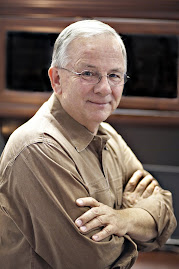
A correct understanding of personhood - the classical view - is not merely a cold, obscure, and irrelevant religious dogma. It is a foundational and indispensable part of understanding who you are and your sense of self-worth and dignity. It opens the door to purposeful living, to a proper understanding of self, and ultimately determines your view of leadership.
The classic, Judeo-Christian view of personhood starts with an understanding of God Himself. The biblical record begins with God, In the beginning God… (Genesis 1:1, ESV). God alone is the fountainhead of all that exists. God is completely independent of and sovereign over all things He created. God is not dependent upon any created thing. Throughout eternity it is God alone who creates, upholds, and governs every part of His creation from the largest to the smallest.
All reality is created by, owned by, controlled by, and completely dependent upon God. As the Apostle Paul wrote to the Christians in Rome, For from him and through him and to him are all things. To him be glory forever. Amen. (Romans 11:36, ESV).
This means that God is the author of mankind - of your personhood. Again the biblical record is crystal clear:
Then God said, “Let us make man in our image, after our likeness. And let them have dominion over the fish of the sea and over the birds of the heavens and over the livestock and over all the earth and over every creeping thing that creeps on the earth.” So God created man in his own image, in the image of God he created him; male and female he created them.
Genesis 1:26-27 (ESV)
Yes, you are a creature, part of the rest of God’s creation. Yet, at the same time, you are set apart from the rest of creation. You are unique, carefully shaped, male and female, in the very image and likeness of God. Consequently, you are distinct from the rest of creation. This likeness is not incidental. It is intentional. It was God’s conscious and purposeful design to make you in such a way that you reflect His image.
Then God said, “Let us make man in our image, after our likeness. And let them have dominion over the fish of the sea and over the birds of the heavens and over the livestock and over all the earth and over every creeping thing that creeps on the earth.” So God created man in his own image, in the image of God he created him; male and female he created them.
Genesis 1:26-27 (ESV)
Yes, you are a creature, part of the rest of God’s creation. Yet, at the same time, you are set apart from the rest of creation. You are unique, carefully shaped, male and female, in the very image and likeness of God. Consequently, you are distinct from the rest of creation. This likeness is not incidental. It is intentional. It was God’s conscious and purposeful design to make you in such a way that you reflect His image.
Being made in the image of God is the primary organizing principle of human life. It is the essential element of your existence. It shapes how you are to live. People should be able to look at you and see something of God because you are to represent something of God himself. You reflect Him, like a mirror, to the rest of creation.
Indeed, reflecting God’s image has significant implications for every person in every arena of life, including leadership. As Anthony Hoekema observed,
Any view of the human being that fails to see himself or herself as centrally related to, totally dependent on and primarily responsible to God falls short of this truth.
What is man? Man is the bearer of the very image of God. This is the answer!
Any view of the human being that fails to see himself or herself as centrally related to, totally dependent on and primarily responsible to God falls short of this truth.
What is man? Man is the bearer of the very image of God. This is the answer!
This reality is foundational to understanding the truth about leadership!
Hoekema, Anthony A., Created in God’s Image, Grand Rapids, MI, William B. Eerdmans Publishing Company, 1986, p.1.



